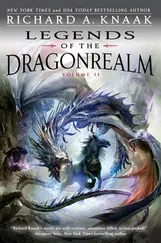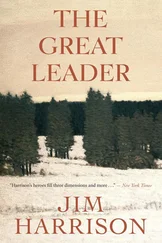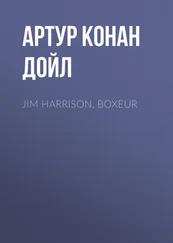Jim Harrison - Legends of the Fall
Здесь есть возможность читать онлайн «Jim Harrison - Legends of the Fall» весь текст электронной книги совершенно бесплатно (целиком полную версию без сокращений). В некоторых случаях можно слушать аудио, скачать через торрент в формате fb2 и присутствует краткое содержание. Жанр: Классическая проза, на английском языке. Описание произведения, (предисловие) а так же отзывы посетителей доступны на портале библиотеки ЛибКат.
- Название:Legends of the Fall
- Автор:
- Жанр:
- Год:неизвестен
- ISBN:нет данных
- Рейтинг книги:5 / 5. Голосов: 1
-
Избранное:Добавить в избранное
- Отзывы:
-
Ваша оценка:
- 100
- 1
- 2
- 3
- 4
- 5
Legends of the Fall: краткое содержание, описание и аннотация
Предлагаем к чтению аннотацию, описание, краткое содержание или предисловие (зависит от того, что написал сам автор книги «Legends of the Fall»). Если вы не нашли необходимую информацию о книге — напишите в комментариях, мы постараемся отыскать её.
Legends of the Fall — читать онлайн бесплатно полную книгу (весь текст) целиком
Ниже представлен текст книги, разбитый по страницам. Система сохранения места последней прочитанной страницы, позволяет с удобством читать онлайн бесплатно книгу «Legends of the Fall», без необходимости каждый раз заново искать на чём Вы остановились. Поставьте закладку, и сможете в любой момент перейти на страницу, на которой закончили чтение.
Интервал:
Закладка:
Back in Montana it was autumn again, only a fated year since the boys left for the war. Isabel and Susannah had left for Boston after Susannah was cured from a bout of pneumonia caught on a long cold walk in the rain. That year there were only three days of true Indian summer and one afternoon on the porch Ludlow was fiddling with a crystal set while One Stab and little Isabel gravely watched. When the first strains of music came over the airwaves from Great Falls they were simultaneously appalled. The sleeping bird dogs on the porch stood and barked, the male with his shoulder pelt ruffed in threat. Ludlow nearly dropped the set which he had spent two days assembling. Then Isabel laughed and clapped, jumping in a circle. One Stab lapsed into a deep brooding state as Ludlow explained the notion that everything owned its own sound. Within an hour of thought One Stab considered the crystal set to be as essentially worthless as the gramophone.
Susannah spent the winter in Boston at Isabel's Louisburg Square address. Still alienated from her parents over the matter of her marriage, she found Isabel to be a good companion and their relationship progressed from the artificiality of daughter-in-law and mother-in-law to close friends. Isabel had decided to take no lovers that year and had instead devoted her energies, other than to the usual symphony and opera, to the learning of French and Italian and to the questions of feminism and suffrage. She held a dinner for a distant cousin, the poetess Amy Lowell who was somewhat a scandal, given as she was to smoking cigars in public. Susannah, whose health had been weak, was delighted with the grand orotund lady who asked for a goblet of brandy after dinner, lighted a cigar and read her slight, fragile poetry so absurdly different from the bearer.
Susannah never received the letter from Tristan from Falmouth, only a note from the British government that the letter would be held until such time as its sensitive nature would not endanger the war effort. This puzzled and grieved her and she nearly contacted her father who had received news of Tristan of a somewhat congratulatory nature. The British Consul in Boston had advised him that Tristan would receive the Victoria Cross for successfully undertaking a mission of an extremely perilous character, the exact nature of which could not be revealed. Susannah's father could not help but mutter "damned adventurer" when he heard the news though it came out at a Harvard Club luncheon and he was roundly congratulated for having so noble a son-in-law. He was cut somewhat from the same cloth as J. P. Morgan and Jay Gould though from a decidedly smaller pattern. The war in Europe would clearly provide him with his financial heyday, and he plunged heavily into cattle and grain from a base of mining and manufacturing. He had set Alfred up with an office in Helena, encouraged him to enter politics and to send him weekly reports on any economic intelligence he might garner. Alfred had already made him a nearly extortionary profit on a wheat deal and Susannah's father could not help but think what a fine son-in-law he would have made. Arthur was heavily into Standard Oil which had bought the Montana copper interests from Anaconda, forming Amalgamated Copper. Alfred clearly understood the prerogative of those who owned the capital while Ludlow who tended to dotter was sentimental about miners' wages and living conditions. When scab vigilantes hanged a Wobbly from a bridge in Butte, Arthur saluted them.
In the spring Alfred came east for Arthur's counsel in mapping out his future, to see his mother and not incidentally Susannah whom he loved in secret. Alfred was a bit cloddish compared to Tristan and Samuel but he was steadfast in his admiration of his brothers, and of a loving and faithful nature. He wept one evening at bedtime when he found himself wishing that Tristan wouldn't return and Susannah would somehow fall in love with him. In fact Alfred was a bit too guileless, a characteristic his political career would speedily change. It hurt him deeply in Boston when Susannah seemed almost not to notice him across the dinner table at a celebration over the reunion of the family. In the days that followed she was friendly but distant on a number of April walks across Boston Common when it seemed his heart would burst. She gave him on parting a book of Amy Lowell's poetry which his essentially stodgy nature could make nothing of, but the inscription, "Dearest Alfred, you are such a good, noble man, love, Susannah," kindled his spirits to a point that in the privacy of his compartment on the long train ride home he opened the book jacket, smelled her inscription and trembled thinking he caught the scent of her.
The schooner was not fairly beyond sight of Dar es Salaam where they had loaded the ivory when Tristan was struck with acute dysentery so virulent that he fainted at the wheel. The first stage of the disease flattened him and he ran a temperature of over a hundred and five during a week when the seas ran so high Asgaard feared both for the life of the captain and the boat. And had not Tristan and the schooner both owned nearly supernatural constitutions they both would have rested unshrouded on the bottom of the Indian Ocean. At the end of the first week the fever did not break but diminished to the point that Tristan was at least ambulatory in his tropic nightmare. In his waking dreams he had seen the gates of hell and wanted to walk through them and God alone knows what held him back one midnight when he perched naked on the bowsprit like a gargoyle with the warm spray of the ocean cooling him only a little until the Mexican sapped him with a belaying pin and put him back to bed.
For Tristan the dead were on deck and in his cabin he drank, despite his fever, and heard their footfalls. Samuel laughed and talked about botany but there was snow in his hair and his white hair blew in the shore winds as they neared Colombo in Ceylon. Susannah appeared with blue wings and One Stab howled off the bow wake. He heard them, even saw them, through teak and white-oak slabs. He did not know what was delirious sleep or delirious waking so that both his waking and sleeping dreams were soul chasers. One dawn Asgaard found him down in the hold nude, clasping a huge elephant tusk to his chest and examining the bloody root which had darkened and smelled horrible. Tristan grappled upward to the deck and tried to heave the tusk overboard when Asgaard restrained him and he was confined to his cabin with the Mexican on guard.
Tristan had in his fever achieved that state which mystics crave but he was ill-prepared for: all things on earth both living and dead were with him and owned the same proportion, he did not recognize in any meaningful sense his naked foot at the end of the bed, or the ocean under whose lid it was always night even at high noon, the blood at the end of the great tusk did not belong on the schooner and throwing it overboard would somehow return it to the elephant's head. Susannah arrived as a pale pink sexual ghost and her womb covered him, saline like the spray off the bowsprit until he was a ghost, too, and he was the ocean, Susannah herself, the bucking horse beneath him, the wood of the sea horse beneath him, both wind ripping the sails and the moon above the sails and the light of the dark between.
He had largely recovered by the time they hit the entry of the Strait of Malacca and sailed in fair soft winds toward Singapore. The ivory was dumped without ceremony at a shipboard conference not the less profitable because of the Chinese businessmen's fear of the cutthroats that watched the bargaining. Tristan was stretched thin by his disease as cable about to be sprung but fully in command. He agreed to take at an exorbitant price a trunk of pure opium to San Francisco to be accompanied by one of the businessmen. Asgaard hedged but over dinner Tristan made an even split of the ivory profits with the crew, saving out an extra share for his grandfather as the owner of the schooner. He said the same would happen with the opium profits and Asgaard lapsed into a dream of a small farm on the coast of Denmark that could easily be his own. The Cubans celebrated thinking how overwhelmed their families would be with this new wealth. Only Tristan and the Mexican were rootless, cared next to nothing for the pile of money before them because they wanted nothing that could be bought with it: one could suppose that the Mexican thought of his far-off and beloved country he could not return to without dying. And God knows what Tristan wanted other than to revive the dead: his brain was the remnant of carnage, a burned city or forest, cold scar tissue.
Читать дальшеИнтервал:
Закладка:
Похожие книги на «Legends of the Fall»
Представляем Вашему вниманию похожие книги на «Legends of the Fall» списком для выбора. Мы отобрали схожую по названию и смыслу литературу в надежде предоставить читателям больше вариантов отыскать новые, интересные, ещё непрочитанные произведения.
Обсуждение, отзывы о книге «Legends of the Fall» и просто собственные мнения читателей. Оставьте ваши комментарии, напишите, что Вы думаете о произведении, его смысле или главных героях. Укажите что конкретно понравилось, а что нет, и почему Вы так считаете.











